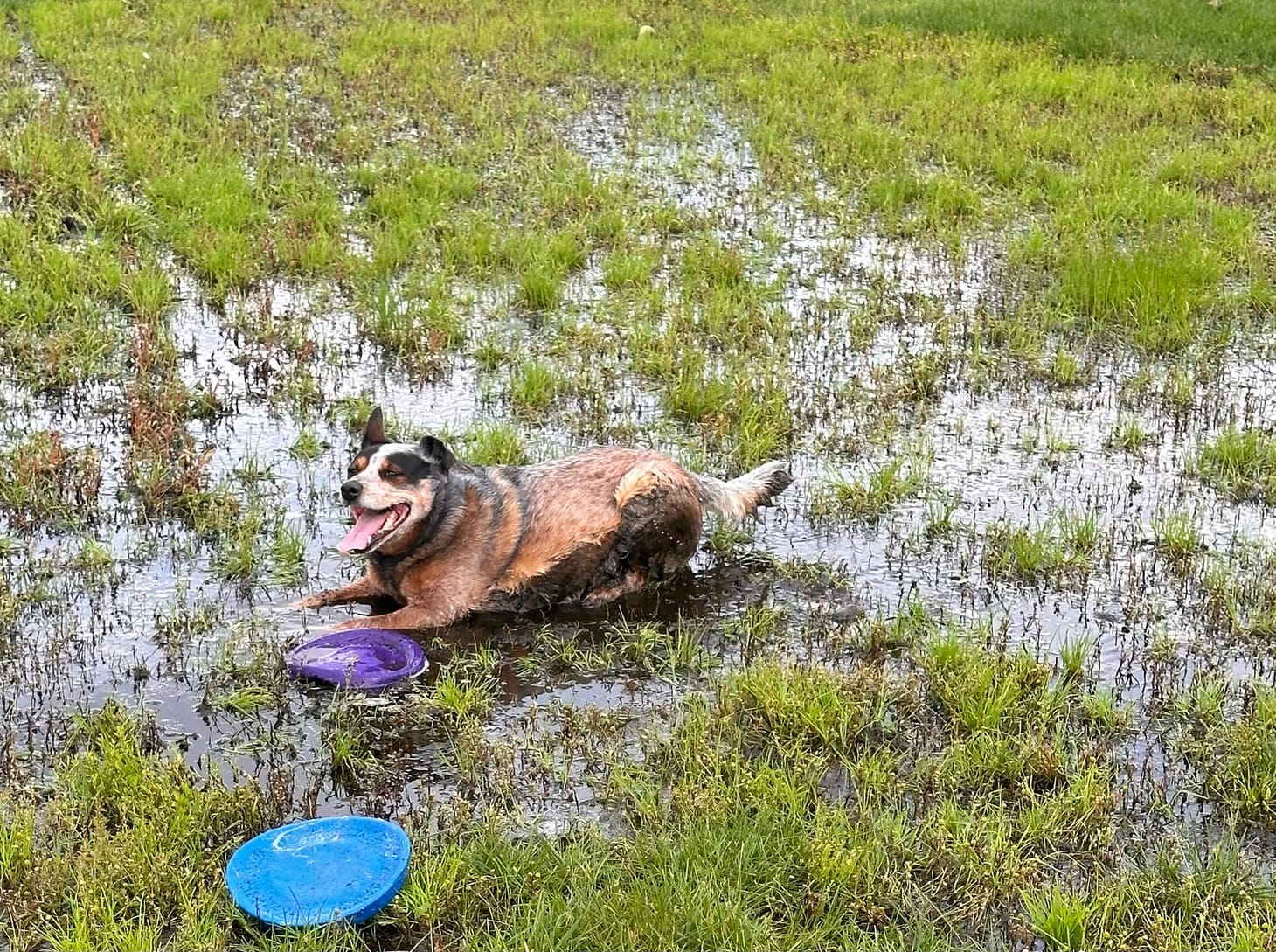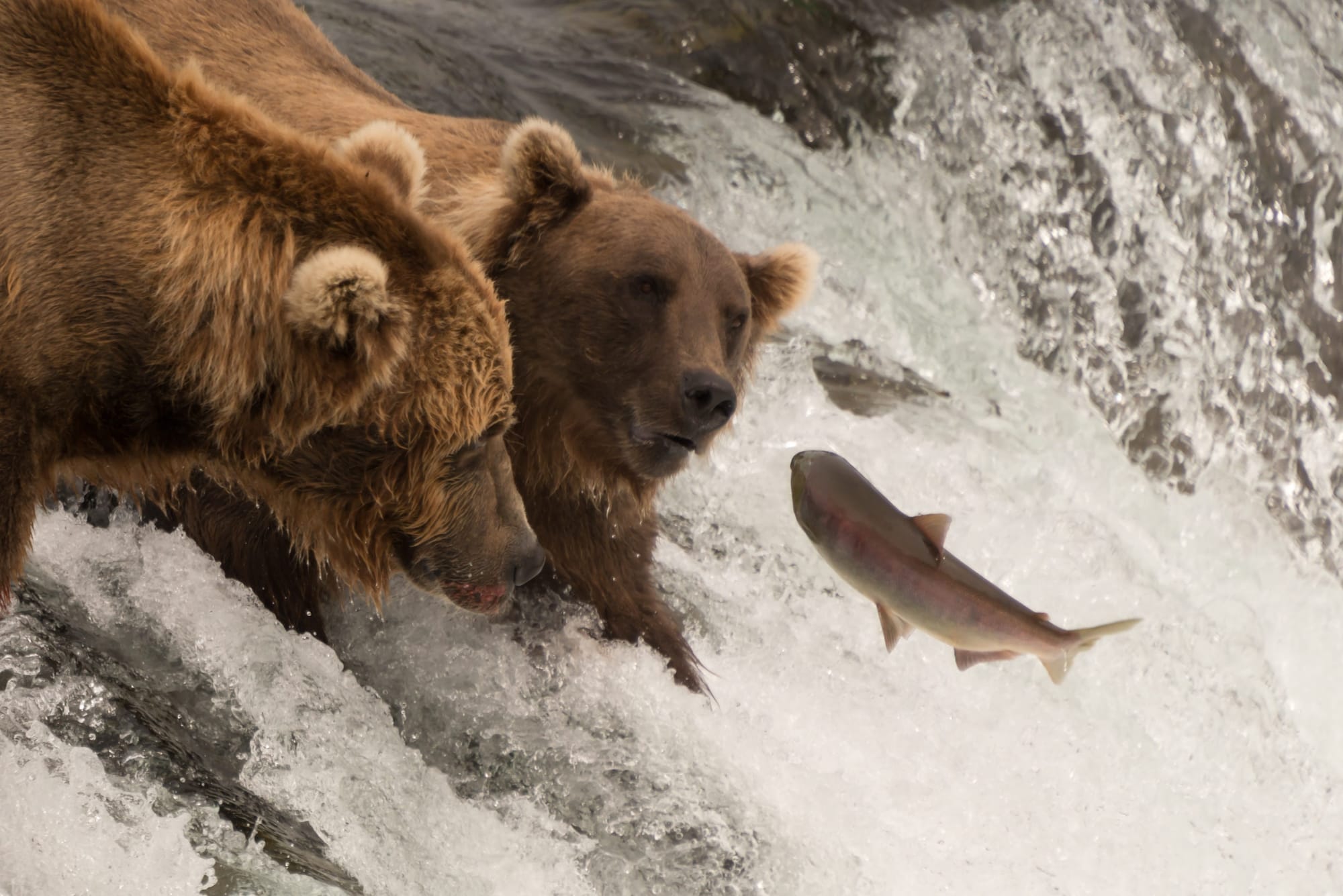Let’s overreact to the primary election
Alaska's favorite pastime.

Happy Saturday, Alaska!
In this edition: Alaska’s primary election wrapped up this week, providing a few more surprises than you might expect from a night where just three of more than four dozen races had anything at stake. U.S. Rep. Mary Peltola cleaned up, Lt. Gov. Nancy Dahlstrom dropped out along with a couple of other Republicans, who seem hellbent on not learning from the past, and the legislative races are a bit of a scattershot. Anyone can read anything from the results… so let’s do that! Also, the reading list and weekend watching.
Current mood: 🤓
Let’s overreact to the primary election

Examining the results of Alaska’s primary election this week comes with many caveats. The top-four open primary means most candidates in most races will advance to the general election, and as such, the campaigns aren’t entirely spun up. Turnout currently sits at a pretty dismal 16%. But then again, it wouldn’t be politics if we didn’t take a moment to overreact to the results. So, in this edition, let’s run down some of the big surprises and how they’re already impacting the race.
The U.S. House Race

After vaulting into the spotlight in the chaotic 2022 special election to replace the late U.S. Rep. Don Young, Democratic U.S. Rep. Mary Peltola has been unfailingly centrist, making plenty of moves that have frustrated progressives. That included her mealy-mouthed weigh-in on the presidential race, which (rightly so) left reporters with the impression that the candidate who capitalized on an image of likable decency could be open to supporting convicted felon and former President Donald Trump. She ultimately walked that back, leaving her in an awkward position of not endorsing and not supporting Trump.
All that to say. If the primary results are anything to go by, it looks like she’s doing something right.
According to the latest primary results, Peltola received an impressive 50.4% of the vote. Repeating that in the general election will spare her any uncertainty about how the Republican side of the ticket might behave under ranked-choice voting.
However, much of that uncertainty was eliminated on Friday when Republican Lt. Gov. Nancy Dahlstrom announced she was dropping out of the race following a disappointing third-place finish, where she got about 20% of the vote. This leaves third-time Republican candidate Nick Begich III as the lone major challenger in the race. Begich, who finished behind Peltola and former Gov. Sarah Palin in the 2022 special and regular elections, got about 27% of the primary vote.
Dahlstrom’s lackluster finish was largely to be expected from the low-profile politician, whose last-minute ad blitz touting her endorsement from President Trump didn’t convey a whole lot of confidence. While she didn’t agree to the drop-out pledge that Begich and some other Republican legislative candidates have made (and, in several legislative races, made good on), the conservative media machine spun up to pressure her out of the race with warnings about her political future if she “cost” the Republicans the race by staying in.
Still, it’s hard to overlook that Dahlstrom was, by and large, the establishment choice for the race and had the backing of national Republicans like House Speaker Mike Johnson (who was among those she thanked in her statement (Begich was not)).
While that helps consolidate the Republican side of the ticket, it doesn’t mean it will immediately be a neck-and-neck race for the seat. As the results of ranked-choice voting show in the 2022 elections, the voters backing one candidate will not always neatly coalesce behind a candidate from the same party. Some voters will cross party lines, and others will not vote in the race at all. To be sure, Dahlstrom’s withdrawal likely minimizes those camps.
Republican drop-outs

After more reflection on the Republicans’ pledges to drop out if they’re not the top-performing conservative candidate in the race, I think it’s landing more on the “shrug” end of political strategies that tips the fact their hand may not be that great in the first place. The open primary system is designed to give voters a broader set of options in who will represent them in Juneau, which in 2022 translated to a lot more moderate and centrist candidates winning. In each one of these pledges, the only signers are conservative, party-beholden Republicans. If they want to treat the open primary as the old partisan primary to ensure there’s just one hand-picked party favorite on the ballot, that doesn’t change the fact that voters have been opting for more moderate and centrist Republicans at every opportunity.
As moderate pension-backing former Republican Rep. Chuck Kopp told the Alaska Beacon after walloping establishment Republican Rep. Craig Johnson by more than 20 percentage points: “It tells me that there’s a fresh breeze blowing through the political air in Alaska.”
That said, following the primary election, a handful of Republicans have dropped out, but one stands out to me.
That’d be Republican Rep. Tom McKay, who couldn’t help but run to the far right after narrowly winning his 2022 election and couldn’t win re-election, so he opted for a face-saving run for West Anchorage’s state Senate seat. He made the call on Friday after finishing in a dismal third place… SECOND PLACE?!? West Anchorage Democratic Sen. Matt Claman cleaned up with nearly 60% of the vote to McKay’s 21% and Republican former-legislator-turned-perennial-candidate Liz Vazquez at 19.4%. According to the Anchorage Daily News, McKay had a dour reading of the results and said there was no path to victory. While Vazquez said they could have used ranked-choice voting to their advantage, essentially doubling up campaigns against Claman, McKay insisted that convincing voters to rank is impossible.
Which, hey, is weird because that’s precisely how McKay won the election in 2022. He was initially in second place behind Democrat Denny Wells and only pulled off the razor-thin victory because most of the Republican votes consolidated around him. That anti-RCV Kool-Aid must be something if it can make you discount your first-hand experiences.
The political winds

As I said up top, you can read pretty much whatever you want with these results.
If you’re on the side of conservative Republicans, I think there’s some good news:
- The swap from Rep. Tom McKay to Republican former legislator Mia Costello looks wise in House District 15. She has 51.4% of the vote to Democrat Denny Wells’ 44.3%, with the significant caveat that perennial not-a-Democrat-Democrat Dustin Darden drew 4.3%. That said, Wells has raised a massive amount of money that has yet to be deployed, while Costello’s fundraising has been anemic (though it’s been propped up with Americans for Prosperity spending).
- Almost everything in the last bullet point also applies to the race for Anchorage’s House District 11. Republican Rep. Julie Coulombe leads well-funded independent Walter Featherly 53%-47%.
- Leslie Hajdukovich, Fairbanks Republicans’ latest best chance at beating Democratic Sen. Scott Kawasaki, has a narrow lead in the primary, 51% to 49%. Kawasaki has, so far, fended off every one of Republicans’ “best chances” to beat him, so there’s a lot of room left, but it’s competitive.
- In the race to replace moderate Republican Sen. Click Bishop, right-wing Rep. Mike Cronk is in the lead with about 43.4% of the vote to undeclared candidate Savannah Fletchers’ 42.75%. Both are competitive, but Cronk has the upper hand, given that the other two candidates in the race (drawing about 14% combined) are to his right.
If you’re everyone else (bipartisan-minded Republicans, independents and Democrats), then there are probably more races that are promising:
- As mentioned above, Kopp is walloping Rep. Johnson 60.79% to 39.21%.
- In East Anchorage, Ted Eischeid has a nearly 2-point lead over Republican Rep. Stanley Wright. Wright narrowly won the election in 2022 and had flashes of more moderate politics than his fellow Republicans, but was still reliably Republican.
- Several typically close races throughout Anchorage don’t look nearly as competitive this time. Previous election cycles would have made for tough challenges for Democrats like Reps. Andy Josephson in Midtown and Donna Mears in East Anchorage, but they have nearly 15-point leads over their Republican challengers. Others are in the 20-point-plus range.
- Longtime South Anchorage Democratic candidate Janice Park is racking up the Ws this year. Not only did she finish ahead of Republican Sen. James Kaufman 48.5-45.8, but the Alaska Supreme Court also ruled in her favor in an interesting-in-the-wonkiest of-ways adverse possession case. Park has been running without much meaningful party support in several elections, but is a much better candidate than the “perennial” label would suggest. Perhaps it’s time to rethink that backing. While a Republican took the remaining 5.7% of the vote, suggesting there’s still a big block of Republican voters, it’s looking like it could be competitive.
And who really knows?
- Moderate labor-friendly Republican Sens. Kelly Merrick and Jesse Bjorkman are probably the two biggest targets of conservative Republicans in this election, as the competitive primaries show. Bjorkman finished with a solid edge over extreme-right Rep. Ben Carpenter, and Merrick is neck-and-neck with Republican challenger Jared Goecker. With it not looking like any candidate is a lock to seal up 50% of the vote, ranked-choice voting will likely be important here. Ranked-choice voting will also undercut whatever advantage Republican operatives were hoping to get out of the “fake” Democrats I discussed earlier this week.
And, at the end of the day, there’s still a fair bit of time left, a lot more voters who will ultimately weigh in and a whole big presidential election that will suck all the air out of the room.
Stay tuned!
The Alaska Memo by Matt Buxton is a reader-supported publication. To receive new posts and support my work, consider becoming a free or paid subscriber.
Reading list
- Matt Salisbury is the No. 4 candidate in Alaska’s U.S. House voting. Who is he?
- 2 rural Alaska precincts fail to open for primary voting after workers don’t respond to state
- Community calls for hope and healing after police kill 16-year-old: ‘This is Anchorage’
- Alaska Supreme Court weighs claim that Division of Elections gave ranked-choice repeal special treatment (and upholds it)
- ‘We kind of got our students back’: Some Anchorage schools are rethinking phones
- Palmer’s new city manager says his past controversies won’t be a problem here
- Alaska appeals federal court ruling that was a step toward new ‘Indian country’ here
- Bellwether trial in Kroger-Albertsons merger begins Monday
- Troopers' union condemns commissioner comments on violent Kenai arrest
Weekend watching
One of my favorite bits of internet pedantry is misused bird calls and animal sounds in movies and television, which makes me all the more grateful for all the loons (and other neat birds) we get to experience.
Have a good weekend, everyone!
The Alaska Memo Newsletter
Join the newsletter to receive the latest updates in your inbox.




